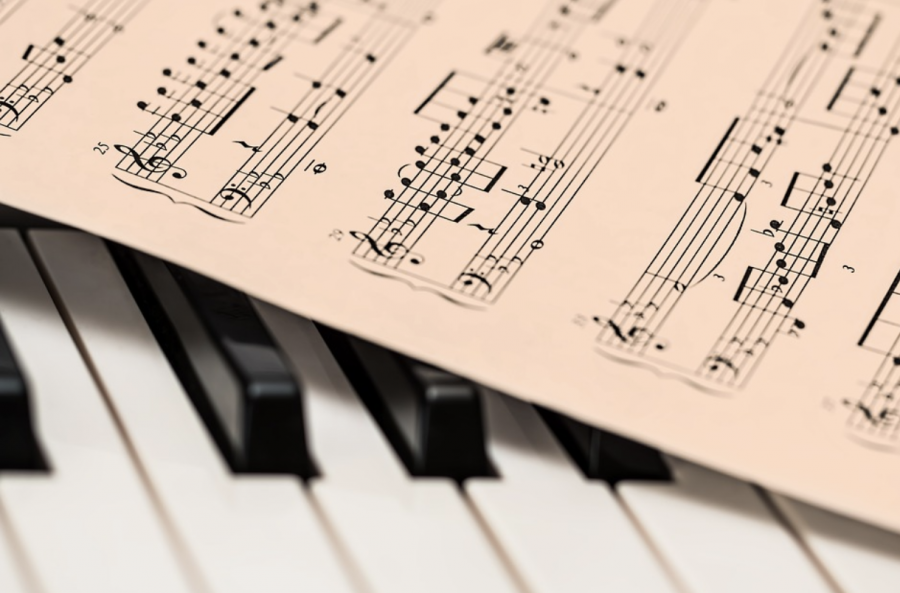Kicking Back with Bach: Why You Should Listen to Classical Music
November 18, 2021
Listening to music while studying or relaxing is not a new concept: many students use music to aid them while they study. They may listen to many types of music, such as pop, rock, and rap. However, one of the more underappreciated genres of music is classical. Most people don’t listen to this genre because they consider it to be boring, but they may be overlooking its positive effects. Compared to other genres, classical music offers the most benefits, enhancing our mood, mindset, productivity, and overall quality of life.
Listening to classical music can improve our mental health. According to a study from Oxford University, classical music helped reduce blood pressure and stress. Scientists hypothesize that classical music tempo—the speed or pace of the music—matches the rate at which our hearts beat, which eases anxiety and depression. Classical music also improves the quality of our sleep and makes us happier by increasing the secretion of dopamine—the “happiness hormone” in our bodies—which activates the brain’s reward and pleasure center.
Classical music can also aid your study sessions. If you need to boost your productivity and memory, classical music may be the perfect supplement to get those gears in your brain running. According to research from Sapienza University of Rome, people who listened to Wolfgang Amadeus Mozart, a famous classical composer, had increased brain activity linked to intelligence, memory, and problem-solving. Classical music can also help you study for that big exam the next day. When students at a French university listened to classical music by Johann Sebastian Bach, another famous composer, during a lecture, they performed better on a quiz than those who did not. When microeconomics students listened to classical music as they slept, they performed 18% better on an exam than students who only listened to white noise. The researchers believe that classical music heightens our emotional state, leading to increased reception of information. Another explanation may also be Targeted Memory Reactivation (TMR), a process in which the brain consolidates memories and forms associations between learning material. “The [classical music] songs can be very distinctive, and therefore pair well with learning material,” said Professor Michael K. Scullin, director of Sleep Neuroscience and Cognition Laboratory at Baylor University.
Because there is a vast array of classical music, it is important to choose the right piece depending on the task we are performing. Fast and upbeat pieces can be better for motivating us to study, while slower pieces may be better for relaxation. Alan Chapman, a host and producer of KUSC radio, suggests listening to piano pieces from Mozart or Debussy. Mozart string quartets, pieces that are played by two violins, a viola, and a cello, are also effective. If you are new to classical music and need suggestions, here are 10 great classical pieces to help you get started:
- “Spring” from the Four Seasons by Vivaldi
- This is an elegant, moderately paced string orchestra piece consisting of a beautiful melody of high violin notes. It evokes the serene and exciting emotions of the spring season. I like listening to this piece when I am solving math or science questions and need extra processing power.
- “Moonlight Sonata” by Beethoven
- This is a slow, dramatic piano piece that has a simple three-note pattern for the melody. It is very calming, and I have listened to it to fall asleep or just relax after school.
- “Nocturne in E-flat major” by Chopin
- This is a dreamy piano piece that has a captivating melody with many trills (rapid alterations between two notes). This piece helps me relax and relieve stress.
- “Piano Concerto No. 23” by Mozart
- This piece is fast-paced and lively, with a pleasing piano melody and string accompaniment. It has fast sections of quick notes, but also has slower sections with calming melodies.
- “Divertimento in D Major” by Mozart
- This Mozart string quartet is an exciting, fast-paced piece with quick violin notes and a fast tempo. It is very uplifting; I like to listen to it to cheer myself up after a bad day.
- “Canon in D” by Pachelbel
- This orchestral piece has a very peaceful and joyful repeating theme. The melody grows in intensity with each repetition, becoming more elaborate and beautiful over time. I can’t describe it well with words, so I suggest that you just listen to the piece for yourself.
- “Gymnopedie No. 1” by Satie
- This simple piece has connected notes, making it smooth and flowing. It also captures many powerful emotions of sadness and relief. If you’ve ever listened to the background music of Minecraft, this piece sounds very similar.
- “Goldberg Variations” by Bach
- This piece contains many different variations, a type of musical form where the overall theme is the same, but each variation has different melodies, harmonies, and rhythms. There are fast variations with loud repeated notes and slower variations with quieter melodies. Playing this piece in the background helps me feel more productive while I am studying.
- “Academic Festival Overture” by Brahms
- This is a very loud and exciting string orchestra piece with quick and high notes along with a healthy dose of drums, trumpets, and cymbals. It is good for improving your mood (but I wouldn’t recommend listening to it while studying).
- “Clair de Lune” by Debussy
- This classic piano piece is quiet, contemplative, and melancholy, but also very powerful. As someone very accurately said, it evokes “the feeling of a solitary walk through a moonlit garden.” If I need to come up with ideas for an assignment, such as brainstorming ideas for an English essay, I love using this song to get inspiration.
Classical music has many benefits. Even if you don’t listen to classical music regularly, try incorporating one or two songs into your playlist, as they may drastically improve your mood, mental health, and studying efficiency. The next time you feel stressed or need to get some work done, try relaxing with some soothing Bach or calming Mozart.







